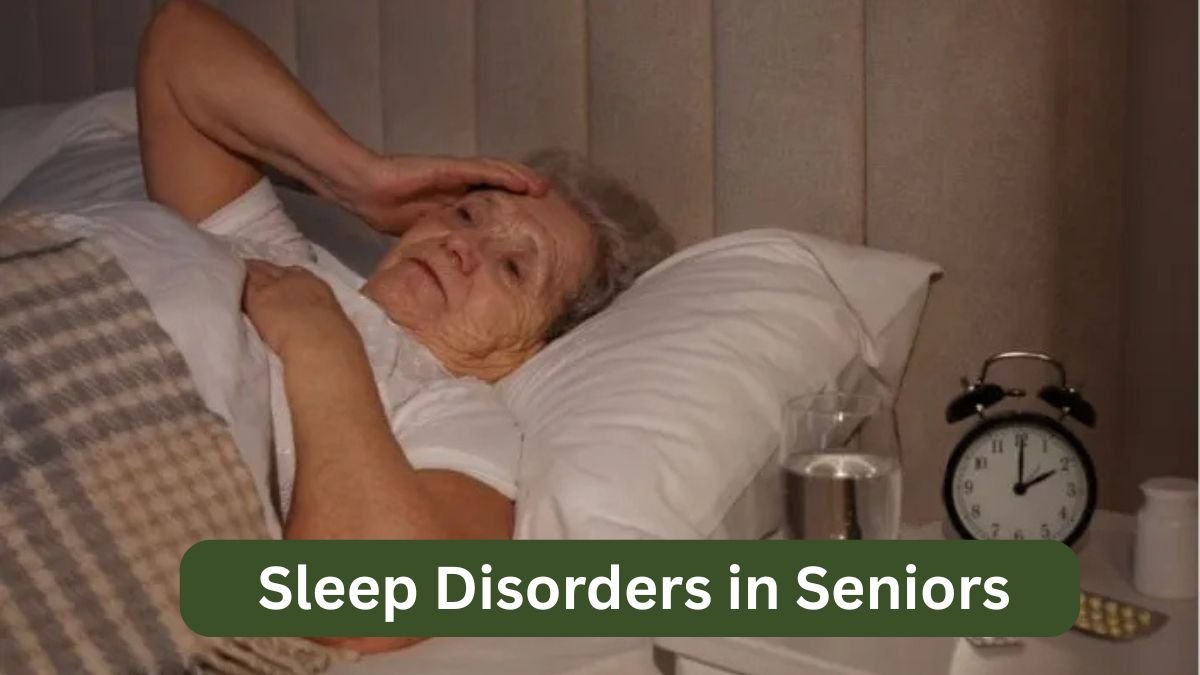Sleep is an essential part of our lives. Getting the right amount and quality of sleep is essential for our physical and mental health. However, as we age, sleep quality begins to suffer. Sleep-related problems have become common among the elderly and can significantly impact their quality of life. In this article, we will discuss in detail the major causes of sleep problems in the elderly and their effective solutions.
Common Causes of Sleep Deprivation in the Elderly
As we age, the body’s natural sleep pattern changes. Melatonin, the hormone that regulates the sleep-wake cycle, declines with age. Additionally, reduced physical activity during the day, stress, and mental health problems can contribute to sleep deprivation. Sleep deprivation can lead not only to fatigue but also to problems like heart disease, high blood pressure, and depression.
Common Sleep Disorders and Their Symptoms
Many types of sleep disorders are found in the elderly. The main ones are:
- Insomnia: Difficulty falling asleep or waking up frequently.
- Sleep Apnea: Stopping breathing during sleep.
- Restless Legs Syndrome: Tingling or restlessness in the legs at night.
Symptoms include excessive daytime sleepiness, inability to concentrate, and irritability.
Health-Related Causes
Sometimes sleep problems are a sign of another health problem. For example:
- Diabetes and high blood pressure: These conditions can disrupt sleep.
- Heart disease: Breathing problems and fatigue can affect sleep.
- Arthritis and muscle pain: Pain can make it difficult to sleep for long periods.
Therefore, proper treatment of these conditions is essential to resolve sleep disorders.
Mental and Emotional Causes
Loneliness, depression, anxiety, and stress are common causes of sleep problems in the elderly. Sometimes, mental stress increases due to children moving away, family changes, or financial problems. Stress-induced insomnia or frequent nighttime awakenings are common.
Lifestyle and Sleep
Lifestyle also impacts sleep quality. Some common habits that affect sleep include:
- Late nighttime TV or mobile phone use
- Excessive caffeine or alcohol consumption
- Sleeping for long periods during the day
- Lack of physical activity
Changing these habits can improve sleep quality.
Proper Sleep Environment
A sleep environment is crucial for the elderly. A quiet and dark room, a comfortable mattress and pillow, and a suitable room temperature all contribute to improved sleep. Additionally, reading a light book or meditating before bed is beneficial for sleep.
Natural Remedies to Improve Sleep
Some natural remedies can be adopted to improve sleep:
- Doing light exercise or yoga daily
- Avoiding caffeine and alcohol during the day
- Drinking warm milk or herbal tea before bed
- Establishing a regular bedtime and wake-up time
These small changes can significantly improve sleep quality.
Medical Remedies
If natural remedies don’t improve, it’s important to consult a doctor. A doctor can analyze sleep patterns and prescribe medications as needed. Sleep aids should only be used with a doctor’s advice, as excessive use can have adverse health effects.
Technological Support and Sleep Monitoring
Many technological devices nowadays help track sleep quality. Smartwatches or sleep monitoring apps can show how deep sleep is and how often you wake up. Based on this data, your doctor can determine the appropriate treatment.
Social Support and Mental Health
Support from family and friends is crucial for improving sleep disorders. For older adults, participating in community activities, spending time with friends, and focusing on mental health can improve sleep. Regular meditation, pranayama, and light activities are beneficial for maintaining mental health.
Conclusion
Sleep problems are common among older adults, but ignoring them can be detrimental to their health. Improving sleep through a healthy lifestyle, natural remedies, and medical advice is possible. Family and social support also contribute to improving sleep quality. Therefore, older adults should recognize sleep problems early and take appropriate measures to maintain a healthy and active life.
